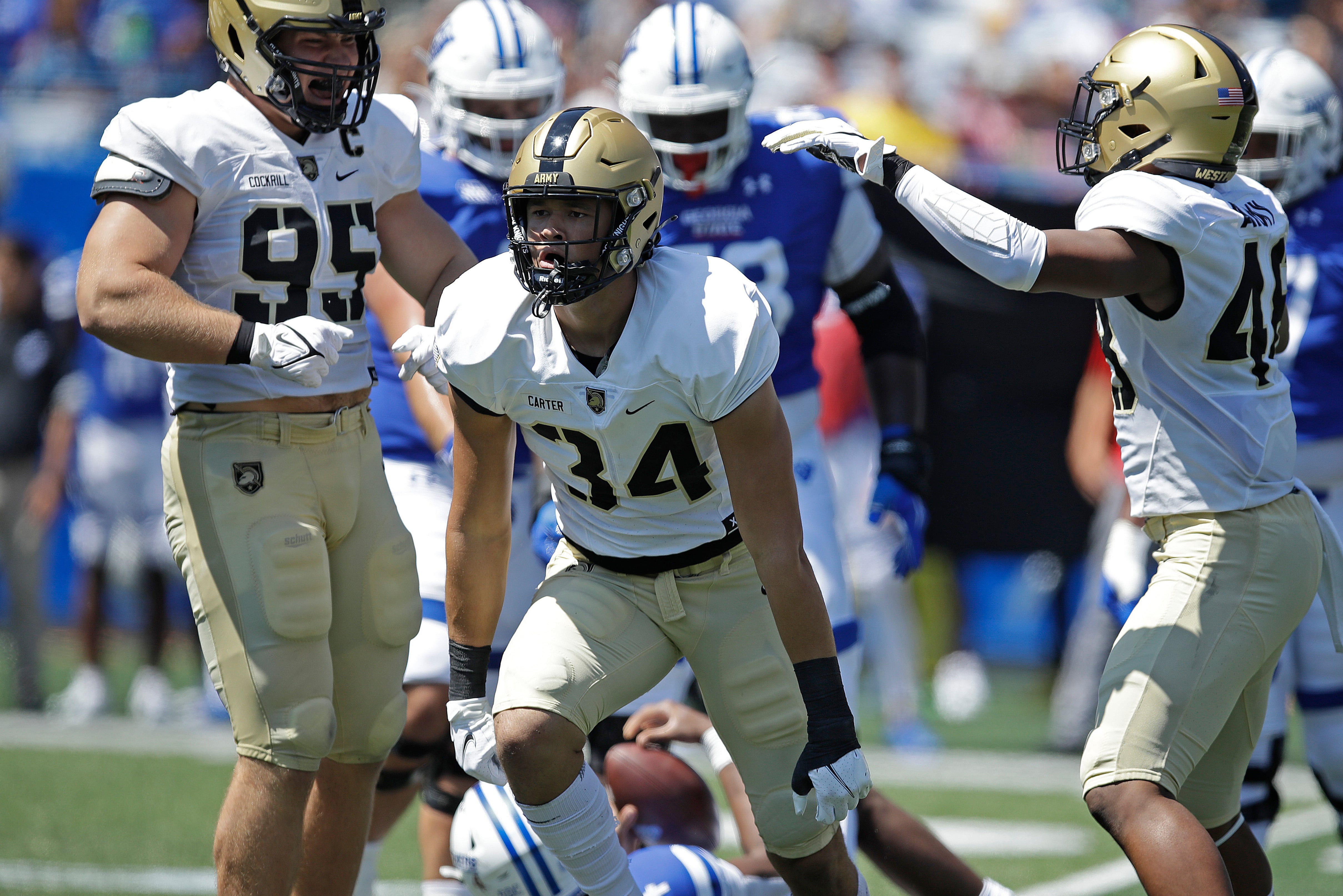Army star linebacker Andre Carter II could be headed to the National Football League after all.
Tucked into the massive government funding bill unveiled by congressional lawmakers early Tuesday morning is language that would allow athletes from the service academies to receive a waiver and defer their active-duty service in order to play professional sports.
That has been the rule for the last few years, and was a factor in Carter’s decision not to transfer from the U.S. Military Academy at West Point to another school two years ago. Now a senior, Carter is seen by some sports analysts as a potential first-round pick in next April’s NFL draft.
RELATED

But Carter’s plans for a service deferment were thrown into disarray last week when lawmakers included a provision in the annual defense authorization bill requiring two years of active-duty service before any such waiver could be granted.
“Service academy appointments are a zero sum game,” lawmakers wrote in explanatory language for the bill. “Every appointment that goes to a graduate who does not complete his or her active-duty service obligation to pursue professional athletics could have been awarded to many other qualified young people who would have happily served their country.”
Both the House and Senate approved the language, and President Joe Biden is set to sign the authorization bill into law later this month.
But after a public outcry over Carter’s situation — and a host of behind-the-scenes lobbying by Army advocates to top Pentagon and Capitol Hill officials — lawmakers backtracked on the new mandate.
Instead, they included language in the omnibus funding bill unveiled this week that would allow any academy students who enrolled before June 1, 2021, to continue under the old waiver rules, and mandate two years of immediate service only for students set to graduate in 2025 or later.
That means Carter would be eligible for a waiver to serve his active-duty time after a professional sports career. Army officials would still have to determine whether Carter’s situation warrants such an exception, but that is seen as a likely scenario.
The service academies do allow deferred service for other non-athletic, non-military opportunities, such as the Rhodes Scholarship program. Since 1970, only two Army football players have been selected in the NFL draft, and both went in the final round.
RELATED

ESPN experts have said that Carter could go to a team in need of defensive help that’s picking somewhere in the last half of the first round. In the 2022 draft, mid-first round NFL picks received four-year contracts worth between $12 million and $16 million.
The appropriations bill still needs to be passed by both chambers and signed by Biden before the new waiver rule becomes law.
That work is expected to take the remainder of this week. If a budget bill isn’t passed before the weekend, the lack of action would trigger a partial government shutdown just before the Christmas holiday.
Leo covers Congress, Veterans Affairs and the White House for Military Times. He has covered Washington, D.C. since 2004, focusing on military personnel and veterans policies. His work has earned numerous honors, including a 2009 Polk award, a 2010 National Headliner Award, the IAVA Leadership in Journalism award and the VFW News Media award.



